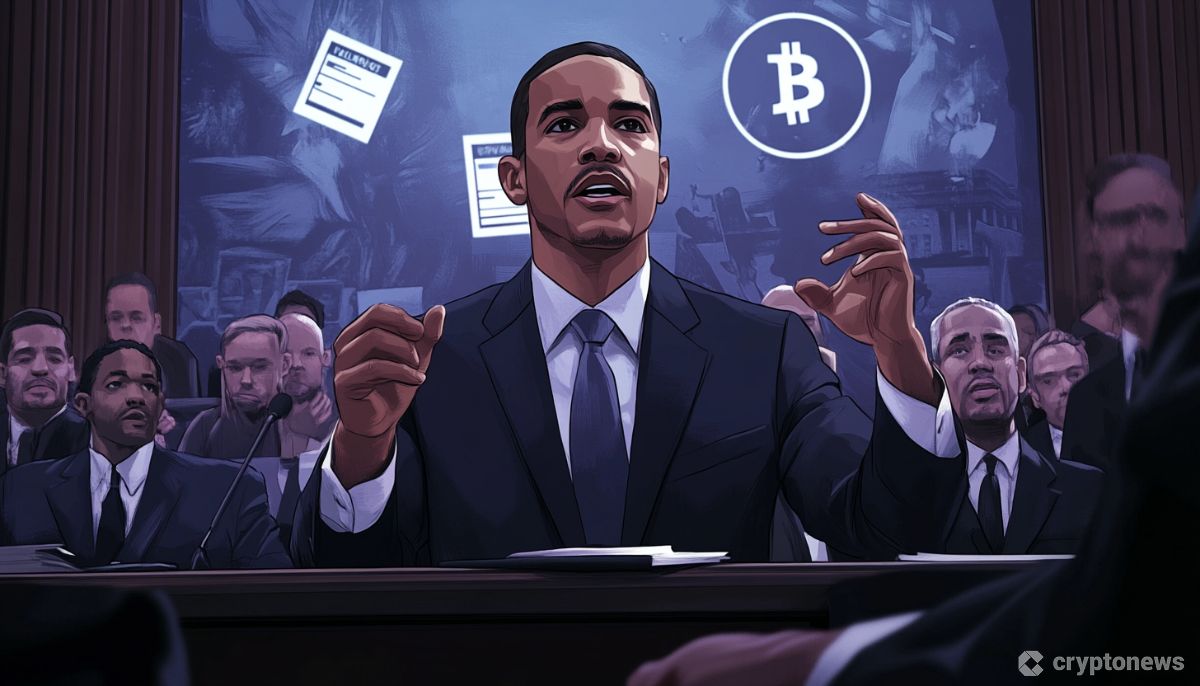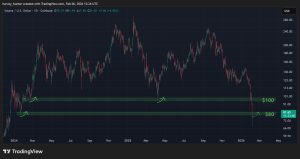Last updated:
 Why Trust Cryptonews
Why Trust Cryptonews

Crypto-friendly lawmaker Rep. Ritchie Torres has called on the U.S. Commodity Futures Trading Commission (CFTC) to shift its focus toward regulating election markets in response to a recent court ruling halting political prediction markets.
The New York Democrat’s appeal comes after a U.S. federal appeals court halted Kalshi’s political prediction markets following the CFTC’s request for an emergency stay after losing a similar motion in a lower court.
The Growing Market for Election Bets: How Are Regulators Responding?
In a letter sent to CFTC Chair Rostin Behnam, the New York Democrat highlighted the need for responsible innovation and consumer protection, citing concerns over unregulated exchanges that have hosted election markets for years.
The push comes after Judge Jia M. Cobb of the U.S. District Court for the District of Columbia ruled that the CFTC overstepped its authority in blocking Kalshi’s bid to offer contracts tied to U.S. elections. The CFTC later appealed the ruling and had previously expressed concerns that election contracts could “undermine confidence in election integrity.”
Torres wrote as an encouragement:
“In light of this, the CFTC should accept the ruling and look forward. I encourage you to focus on promoting responsible innovation, regulating exchanges, protecting consumers, and safeguarding the sanctity and integrity of elections from illegal and unregulated actors.”
Torres also urged the CFTC to consider the resources consumed by continued court challenges and the potential harm to election integrity if unregulated markets gain further traction. He highlighted the importance of the CFTC allocating resources to regulated entities to ensure election markets operate legally and securely.
CFTC Chair Behnam has voiced concerns about the rapid growth of event markets, which have increased in contract size since 2021. The CFTC voted earlier this year to propose rules prohibiting bets on political events as these markets continue to expand ahead of the November elections.
However, the CFTC has not yet responded to Torres’ letter or the recent court ruling.
Kalshi’s Political Prediction Markets Paused by Appeals Court Amid CFTC Legal Battle
Kalshi, a regulated event market, has paused its election-related contracts pending the ongoing legal process, while other platforms, such as Polymarket, remain unregulated in the U.S.
CFTC Chair Behnam has previously warned of a “significant uptick” in event contracts and voted in May to propose rules banning political event bets as the 2024 elections approach.
On September 12, a U.S. federal appeals court temporarily halted Kalshi’s newly launched political prediction markets following the CFTC emergency request.
This action came after a lower court, led by Judge Jia Cobb, ruled that the CFTC overstepped its authority in banning Kalshi from offering contracts on U.S. elections, such as predicting which party would control the House or Senate.
The CFTC had previously lost its motion to prevent Kalshi from listing these markets while awaiting Judge Cobb’s full opinion. Once the opinion was published, Kalshi launched its contracts, prompting the CFTC to file an emergency motion to the appeals court.
The emergency motion paused trading on Kalshi’s contracts, predicting which political party would control the House and Senate.
The CFTC argued that halting the contracts temporarily would minimize public harm, while Kalshi’s attorneys countered that no stay was necessary, asserting that elections don’t constitute “gaming” or “unlawful activity.”
The appeals court granted the stay and ordered Kalshi to respond by Friday evening. The CFTC was given until Saturday evening to reply. Meanwhile, the CFTC is also working on a broader rulemaking process aimed at banning political prediction markets in the U.S. due to concerns over potential election fraud.
















